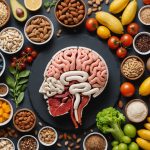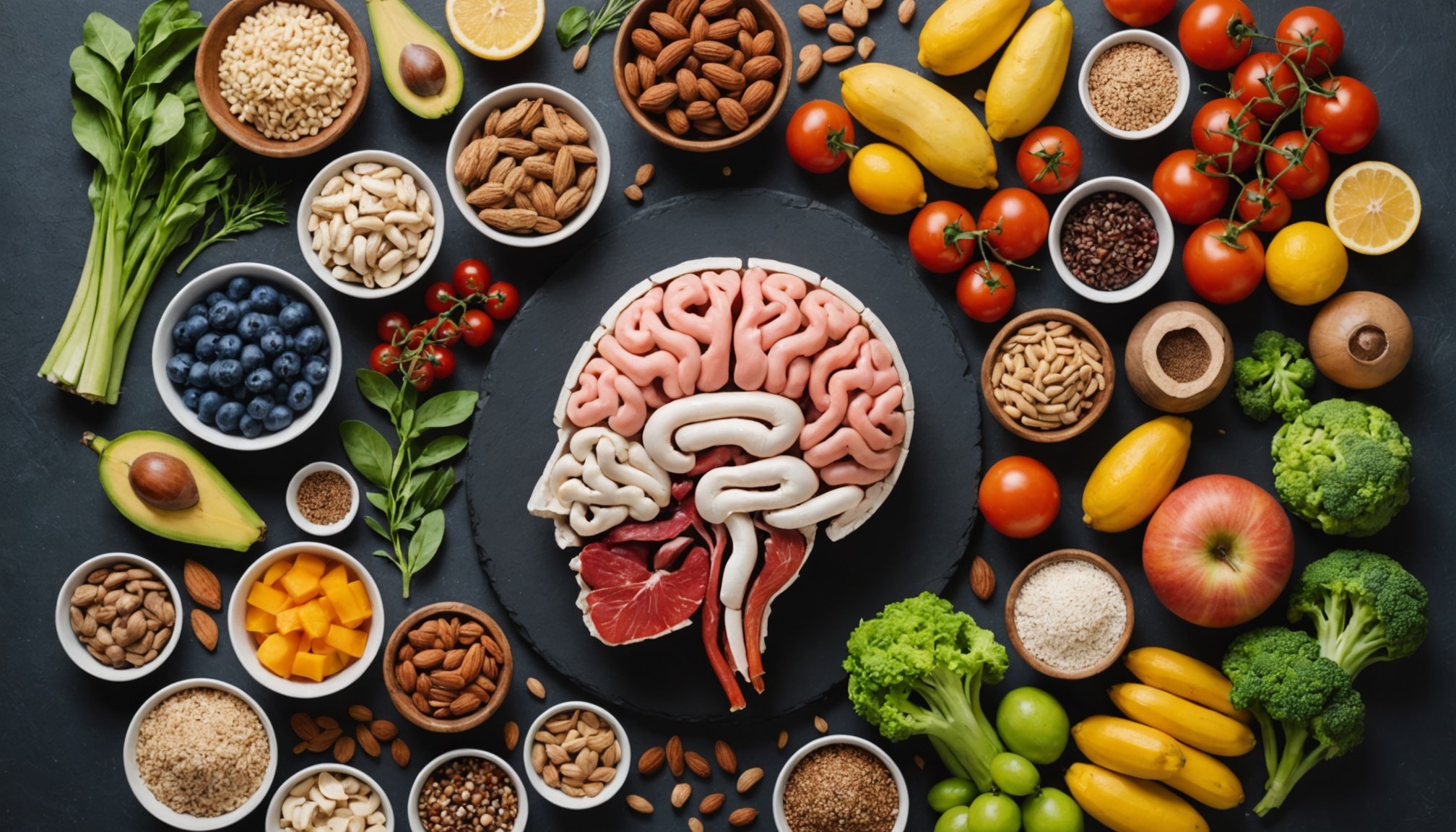The relationship between the gut and the brain is gaining significant recognition in both the scientific community and everyday health discussions. Emerging research emphasizes how our gut health profoundly influences our mental health. This article delves into the implications of this gut-brain connection and explores how dietary choices can support a balanced microbiome and promote psychological well-being.
The gut and brain communicate through a complex system known as the gut-brain axis. This connection highlights how bacteria in our intestines can impact symptoms of anxiety and depression, influencing our emotions and cognitive functions. Understanding this relationship can empower you to make informed dietary choices that enhance both gut and brain health.
Also to read : Top Safe Anti-Inflammatory Herbs to Incorporate into Your Child”s Diet
The Role of the Microbiome in Mental Health
Every human possesses a unique microbiota, a diverse community of microorganisms residing in the gut that plays a pivotal role in our overall health. These microorganisms are not merely passive inhabitants; they actively participate in various bodily functions, including digestion, immune response, and importantly, mental health.
Research suggests that a healthy microbiome can produce neurotransmitters, such as serotonin, which is crucial for mood regulation. In fact, approximately 90% of serotonin is produced in the gut. Therefore, any disruption in the bacteria balance can lead to significant changes in mood and behavior, potentially escalating anxiety and depression.
Also to discover : Essential Tips for Safeguarding Your Health During Emergencies Abroad: A Comprehensive Guide
Moreover, studies highlight that individuals with an imbalance in their gut flora often report higher levels of stress and negative emotions. This imbalance can stem from several factors, including poor diet, antibiotic use, and lifestyle stressors. To support a healthy microbiome, it is vital to include foods rich in probiotics and prebiotics in your diet. Probiotic-rich foods, such as yogurt, kefir, and fermented vegetables, introduce beneficial bacteria into the gut, while prebiotics, found in foods like onions, garlic, and bananas, help feed these friendly bacteria.
Incorporating these foods into your diet may not only enhance gut health but also contribute to improved mental clarity and emotional resilience. As you consider your dietary choices, remember that what you eat can significantly impact not just your gut but also your brain.
Impact of Diet on the Gut-Brain Axis
Diet plays a crucial role in shaping the gut-brain axis. The types of food we consume can either foster a thriving microbiota or contribute to its downfall. Diets high in processed foods, sugars, and unhealthy fats can lead to a less diverse microbiome, which is often linked to various mental health issues, including anxiety and depression.
Conversely, a diet rich in whole, nutrient-dense foods supports the growth of beneficial gut bacteria. Foods rich in omega-3 fatty acids, such as fatty fish, walnuts, and flaxseeds, have been shown to boost brain function and reduce symptoms of stress and anxiety. Furthermore, fruits, vegetables, and whole grains provide essential vitamins and minerals that promote overall bodily health and support a balanced microbiome.
The Mediterranean diet, for example, is renowned for its positive effects on both physical and mental health. This diet emphasizes the consumption of whole grains, fish, healthy fats, and plenty of fruits and vegetables, all of which contribute to a diverse and healthy gut microbiota. Studies have indicated that adhering to this type of diet can reduce the risk of depression and improve mood.
Incorporating a variety of foods into your diet not only supports gut health but can also lead to a more resilient mental state. As you navigate your meals, consider how your choices influence both your digestive health and emotional well-being.
Stress Management and Its Effect on Gut Health
Stress is a significant factor that can disrupt the delicate balance of the microbiome and, in turn, affect mental health. When faced with stress, the body produces hormones like cortisol, which can alter gut permeability and lead to the overgrowth of harmful bacteria. This condition, often referred to as ‘leaky gut,’ allows toxins to enter the bloodstream, which may result in systemic inflammation and contribute to symptoms of anxiety and depression.
Managing stress is vital for maintaining not just mental health but also gut health. Various strategies can help you effectively manage stress levels. Mindfulness practices, such as meditation and yoga, have been shown to lower stress hormones and promote relaxation. Additionally, regular physical activity can enhance mood and reduce anxiety, benefiting both the gut and the brain.
Incorporating stress-reducing foods into your diet can also provide a dual benefit. For example, dark chocolate and green tea are known for their stress-relieving properties and can positively influence gut health. Foods high in antioxidants, such as berries and leafy greens, help combat inflammation and support overall wellness.
Establishing a routine that includes stress management techniques alongside a balanced diet can foster a healthier Gut-Brain axis. Recognizing the interplay between stress, diet, and mental health empowers you to take control of your well-being.
Practical Dietary Recommendations for Gut and Mental Health
To support the gut-brain connection effectively, consider implementing several practical dietary recommendations. First, focus on incorporating a variety of foods that are rich in fiber, which is essential for feeding beneficial gut bacteria. Aim for at least five servings of fruits and vegetables each day, choosing a colorful array to maximize nutrient intake.
Include fermented foods in your diet to enhance microbial diversity. Options like kimchi, sauerkraut, miso, and kombucha are rich in probiotics that can positively influence gut health. Additionally, consider adding prebiotic-rich foods, such as asparagus, leeks, and oats, which serve as nourishment for gut bacteria.
Limit the intake of processed foods, sugars, and unhealthy fats that can harm the microbiome. Instead, opt for healthier fats found in avocados, nuts, and olive oil, which support both gut and brain health. Staying hydrated is also crucial; aim for at least eight glasses of water per day to help maintain overall health and facilitate digestion.
Lastly, consider keeping a food diary to track how different foods affect your mood and overall well-being. This practice can help you identify which foods positively or negatively impact your emotional state, enabling you to make more informed dietary choices.
By adopting these practical dietary strategies, you can support both your gut and mental health, fostering a healthier lifestyle.
The implications of the gut-brain connection are profound and multifaceted, affecting not only mental health but overall well-being. By understanding the intricate relationship between the gut and the brain, you can take proactive steps to enhance your health through dietary choices.
Implementing a balanced, nutritious diet that supports a healthy microbiome can lead to improvements in mood, reductions in symptoms of anxiety and depression, and overall better mental clarity. In conjunction with stress management strategies, these dietary changes can create a powerful synergy that promotes wellness.
As you reflect on your dietary habits, remember that small changes can lead to significant improvements in your gut and mental health. By prioritizing whole, nutrient-rich foods and managing stress, you not only contribute to a thriving gut microbiome but also cultivate a positive mental state.
Ultimately, embracing the gut-brain connection is about more than just what you eat; it’s about fostering a holistic approach to health that considers the complex interplay between your body and mind.











